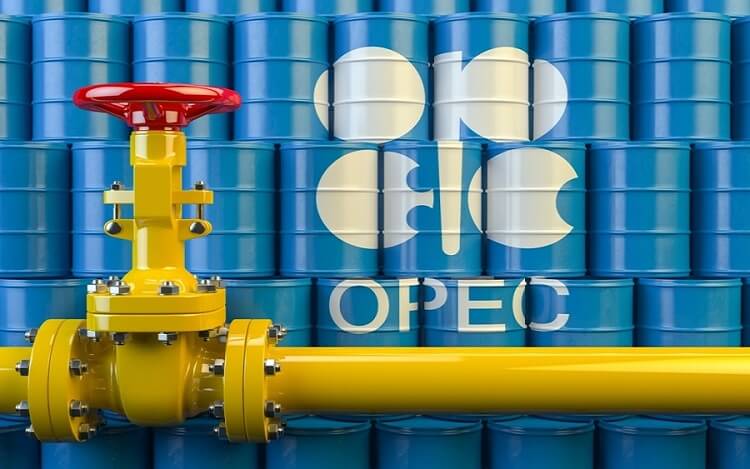…Says Financial Institutions Limiting Flow Of Funds Into Fossil Fuel Investments
The Secretary General of the Organisation of Petroleum Exporting Countries, Haitham Ghais has said that the organization would require the full support and cooperation of President Bola Tinubu to assist Nigeria in meeting it’s energy needs.
Advertisement
He said this on Tuesday at the 22nd edition of the NOG Energy conference with the theme, “Powering Nigeria’s Sustainable Energy Future”
The NOG Energy Week is Nigeria’s foremost international energy conference.
The 2023 Energy Week is the 22nd edition of the annual event holding at the International Conference Centre, Abuja.
The gathering draws together policymakers, regulators, and leaders from the private sector to discuss Nigeria’s vital energy agenda.
Advertisement
He said OPEC will continue to do its part in promoting a pro-investment environment for Nigeria
The OPEC Boss stated further that despite the challenges that lie ahead for the oil and gas sector, Nigeria and other countries are presented with many opportunities.
He said, “The long standing relationship between OPEC and Nigeria runs deep. Our ties to shared values go all the way back to 1971 when Nigeria joined it contributions Nigeria has made this organization since that time are simply too many to list.
“And now, as we look ahead, OPEC will continue to rely on Nigeria’s crucial support and cooperation as His Excellency President Tinubu takes the country forward to help meet the needs of Nigerians now and in the future.”
On the transition from fossil fuel to renewable, Ghais said time has come to see a fair, inclusive and equitable approach to ensure that nobody is left behind as stakeholders navigate the energy transition journey.
Advertisement
He said the OPEC will continue to work closely with member countries to ensure that all voices are heard, and all circumstances are considered in any negotiations or discussions related to climate change.
According to him, global energy demand is forecast to increase by a significant 23 per cent in a period of 2045
He said, “We will require innovative solutions such as carbon capture utilization and storage and hydrogen projects in addition to the circular carbon economy, which has received positive endorsement from the G 20.
“The oil and gas industry has a long history of being at the cutting edge of innovation and technology and now, it has the possibility of bringing that expertise to bear on developing cleaner and more efficient technological solutions to help unlock emissions free future.
“While there is great promise in many of these areas, there is also a grim reality shared by far too many around the world but unfortunately have no access to energy at all. According to the UN, for example, 73 million people do not have access to electricity.
“Furthermore, one-third of the world’s population use dangerous or inefficient complex system which causes a host of health related problems. This uneven world of energy haves and have nots would require that the capacities and national circumstances of developing countries be taken into account when considering actions related to climate change.
Advertisement
“Policymakers must be keenly aware that even the best of intentions can result in unintended consequences and if policies are not well thought out, we could end up making things worse with the potential for high volatility, energy shortfalls or other unwanted outcomes “
On investments inflow into the oil and gas sector, he said the global oil sector alone would need a massive cumulative investment of $12.1trn between now and 2045.
Ghais added, “We are currently not on track to reaching that level. To make things worse, we have in recent years given her calls to limit or stop funding new oil and gas projects all together.
“This is of course, unwise and is a very realistic scenario that will be particularly devastating to developing countries who rely on revenue and their precious oil and gas resources to develop their economies.
“Africa for example, is blessed with an estimated 120 million barrels of crude oil reserves and 18 trillion stand meters of natural gas.
“However, a significant investment will be required to fully realize the potential of these resources to benefit African citizens, while also enabling necessary mitigation actions needed to reduce the carbon footprint of the oil industry.
“In some cases, financial institutions are limiting and tightening, controlling how money is invested into fossil fuels under Environmental, Social and Governance (ESG) impacts this situation is hindering Africa’s progress despite the fact that Africa accounts for only 3 per cent of global greenhouse gas emissions.”



